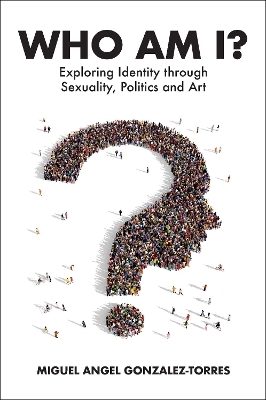
Who Am I?
Phoenix Publishing House (Verlag)
978-1-80013-223-8 (ISBN)
Identity as a concept does not appear in psychoanalysis until the work of Erik Erikson in the 1950s, but today it is considered a key factor in understanding individuals and groups. It is a concept of enormous complexity, encompassing biological aspects, internalised object representations that determine the inner world of the subject, and relational aspects in the real world. Answering the question, ‘Who am I really?’ is a task that can span a lifetime. Constructing one’s own identity involves social, cognitive-rational, and unconscious processes. These elements underpin the answer to this question and its corollary, ‘What is my value?’ As we move from looking at individuals in isolation to looking at groups, we are also confronted with processes of identity construction and repair – this time group identities – through movements in which sexuality and its expression in the group play a major role.
This volume begins by exploring how issues of identity underlie many of the phenomena that attract our attention today, both as clinicians and as citizens. It opens with social and political phenomena such as nationalism, where identity issues are most evident, and then looks at individual nations, such as Spain, and their difficulty in maintaining a valuable identity shared by its citizens. This is followed by an analysis of some aspects of social violence and the response to it, electoral processes and the manipulation of citizens, and
also the impact on personal and group identity of the contemporary dynamics in large corporations, where double-speak and the infantilisation of employees have become commonplace.
In the second part, Miguel Angel Gonzalez-Torres reflects on how we can understand the sexual functioning of individuals and groups from an identity perspective, emphasising the role of female sexuality as a sentinel element that signals deep group identity dynamics. Gender identities and the social response to new proposals and attitudes in this area, the contrast between desire and submission, and the under-explored complexity of the father's role in the contemporary family unit also require a look at the role of individual and collective identity.
Finally, the focus is on artistic creation. Mythical authors and mythical works always have an impact on personal and even social identity. Many cinematographic works presuppose that the authors are searching for an answer to the question of identity: who am I? Or rather, who are we? The book concludes with a reflection on the reparative effect that the urban landscape can have on citizens, through buildings and urban plans that relate to people and respond to their desires, both conscious and unconscious.
The book proposes a journey through these three main areas, reflecting on the importance of the construction and repair of individual and collective identity in our lives as social beings, in our attitudes to sexuality and desire, and in our dual role as creators and viewers of art. It is the perfect book for curious minds.
Miguel Angel Gonzalez-Torres, MD, PhD, is full professor at the department of neuroscience, University of the Basque Country; head of the department of psychiatry, Basurto University Hospital, Bilbao, Spain; and training analyst at Centro Psicoanalítico de Madrid. He uses psychiatry and psychoanalysis to frame his clinical, teaching, and research activities, which focus mainly on psychosis and personality disorders – specifically on psychoanalytic psychotherapeutic approaches to both problems. Transference-focused psychotherapy occupies a special place in his clinical practice. Identity issues have been a long-standing interest throughout his career, particularly the intersection between individual and collective identity, politics, sexuality, and art.
Acknowledgements
About the author
Introduction
Part I
Identity in the social and political sphere
Chapter 1
The attraction of nationalism: identity-focused movements in large groups
Chapter 2
Problematic identity of large groups: Spain as a case example
Chapter 3
After the terror: A reflection on the social reaction to violence and its end
Chapter 4
Identity and relational patterns in political life
Chapter 5
Leadership and labor relations in contemporary corporations
Part II
Identity sexuality and gender
Chapter 6
Female sexuality, nationalism and large group identity
Chapter 7
Gender identity and sexuality: knowing more about us
Chapter 8
Desire and submission
Chapter 9
On being a father: initial developments of the paternal function
Part III
Identity art and creation
Chapter 10
Art, myths and collective identity
Chapter 11
Monsters, time, identity and death in "the hunger"
Chapter 12
Lucian Freud: the artist and the search for identity
Chapter 13
Buildings that heal: architecture and collective identity
References
Index
| Erscheinungsdatum | 28.10.2024 |
|---|---|
| Reihe/Serie | International Federation of Psychoanalytic Societies |
| Sprache | englisch |
| Maße | 152 x 229 mm |
| Gewicht | 516 g |
| Themenwelt | Geisteswissenschaften ► Psychologie ► Psychoanalyse / Tiefenpsychologie |
| Geisteswissenschaften ► Psychologie ► Sozialpsychologie | |
| ISBN-10 | 1-80013-223-9 / 1800132239 |
| ISBN-13 | 978-1-80013-223-8 / 9781800132238 |
| Zustand | Neuware |
| Haben Sie eine Frage zum Produkt? |
aus dem Bereich


